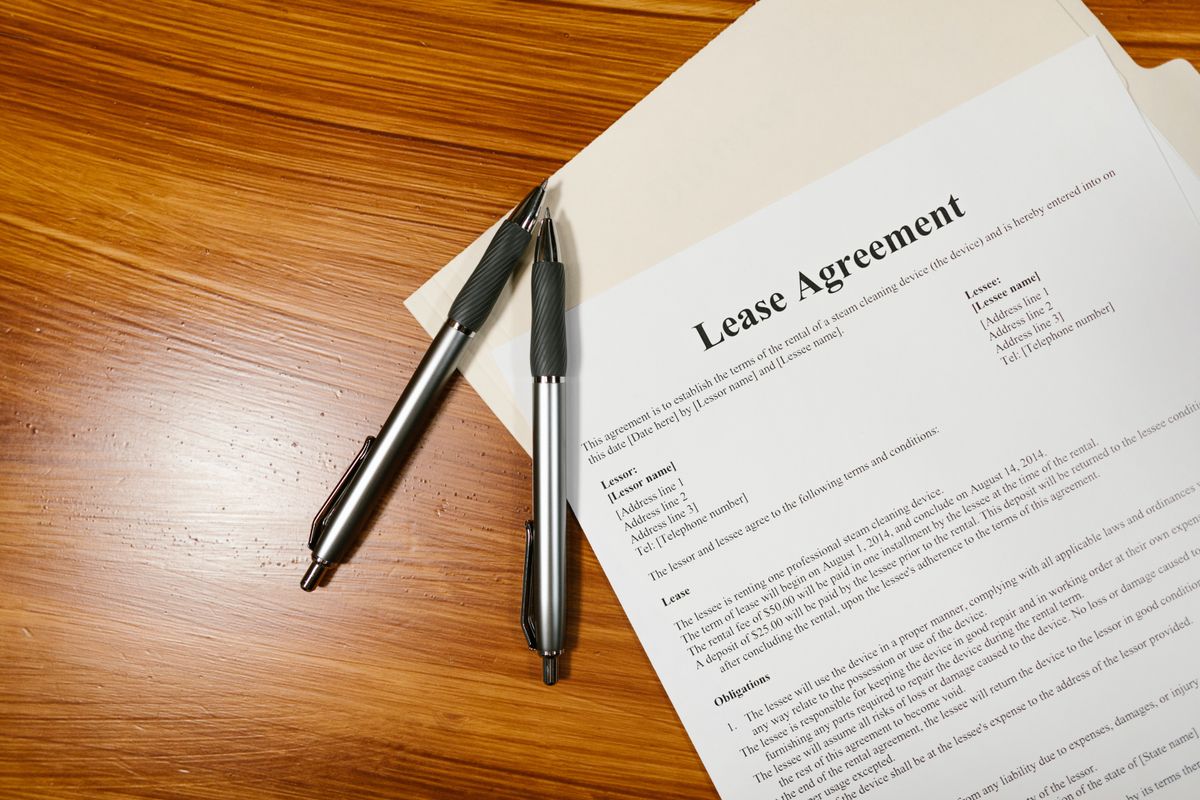Common Terms in a Swedish Room Rental Agreement
A room rental agreement is a legally binding document between a landlord and tenant, setting out the terms and conditions of the rental of a room in an apartment or a house. It is essential that both parties understand the agreement to avoid any misunderstandings or disputes.

Welcome to the world of renting or renting out a room, where everything is just peachy until you realize you signed a contract filled with legal terms you can barely pronounce, let alone understand. But fear not! We’re here to shed some light on these terms and turn that intimidating contract into a fun, informative read. Get ready to be an expert in no time!
From "security deposit" to "quiet enjoyment," we’ll cover all the common legal terms you’re likely to come across when renting a room. And trust us, understanding these terms can save you from some awkward conversations, costly mistakes, and maybe even some legal trouble down the road. So, without further delay, let’s dive into the world of room rental agreements!
What is a room rental agreement?
A room rental agreement is a legally binding document between a landlord and tenant, setting out the terms and conditions of the rental of a room in an apartment or a house. It is essential that both parties understand the agreement to avoid any misunderstandings or disputes.
What are the most common legal terms used in a room rental agreement?
Premises
The term “premises” refers to the room being rented out, including any common areas such as the kitchen, bathroom, and living room.
Landlord
The “landlord” refers to the person or entity who owns the property and is renting out the room.
Tenant
The “tenant” refers to the person who is renting the room and will be living in it.
Rent
Rent refers to the amount of money that the tenant must pay to the landlord each month for the use of the room. It is essential to specify the amount of rent, the due date, and any late fees in the rental agreement.
Security Deposit
A security deposit is a sum of money that the tenant pays to the landlord at the start of the tenancy. It is held as security for any damages or unpaid rent at the end of the tenancy. The amount of the security deposit and any conditions for its return should be clearly stated in the rental agreement.
Lease Term
The lease term is the length of time that the tenant will be renting the room. It is important to specify the start and end dates of the lease term in the rental agreement.
Quiet Enjoyment
The term “quiet enjoyment” refers to the tenant’s right to occupy and use the room without interference from the landlord or others. The landlord must not disturb the tenant’s quiet enjoyment of the premises, and the tenant must not disturb the quiet enjoyment of other tenants or neighbors.
Assignment and Subletting
“Assignment” refers to the transfer of the tenant’s rights and responsibilities under the rental agreement to another person. “Subletting” refers to the tenant renting out the room to another person. Both assignment and subletting require the explicit, written consent of the landlord in order to be effective and legal.
Utilities
The term “utilities” refers to services such as water, electricity, gas, and internet. The agreement should specify who is responsible for paying for these services, whether it is the landlord or the tenant.
Access and Entry
The rental agreement should specify the landlord's right to access the room for maintenance or repairs, and what notice, if any, must be given to the tenant. It should also specify any restrictions on the tenant’s access to the room, such as quiet hours or restrictions on overnight guests.
Maintenance and Repairs
The rental agreement should specify who is responsible for maintenance and repairs of the room and common areas. The tenant is typically responsible for keeping the room clean and in good condition, while the landlord is responsible for any necessary repairs or maintenance to the building and common areas.
Liability and Indemnification
The rental agreement should specify each party's responsibilities and obligations in the event of any damages or losses to the room or building. The tenant should agree to indemnify and hold the landlord harmless from any claims arising from their use of the room.
Termination and Eviction
The rental agreement should specify the conditions under which either party may terminate the agreement and the procedure for eviction in the event of a breach of the agreement by either party. It is important for both parties to understand the conditions for termination and eviction to avoid any misunderstandings or disputes.
Holding Over
The term “holding over” refers to the tenant continuing to occupy the room after the lease term has ended. The rental agreement should specify whether the tenancy will continue on a month-to-month basis or if a new lease agreement must be signed.
Notice to Vacate
The rental agreement should specify the notice period required for either party to terminate the tenancy. The typical notice period for a room rental agreement in Sweden depends on the terms of the agreement and the specific circumstances of the tenancy. Usually, a tenant must provide the landlord with one to three months' notice before ending a rental agreement. This notice period applies to both the tenant and the landlord, unless otherwise specified in the rental agreement. In some cases, the rental agreement may specify a shorter notice period to the benefit of the tenant, but it can not be negociated longer for the tenant than is stated by Swedish rental law.
Renewal Option
The rental agreement may include a renewal option, allowing the tenant to extend the lease for a specified period. The terms and conditions of any renewal should be clearly stated in the rental agreement.
Late Fees
The rental agreement should specify the amount of any late fees for rent payments received after the due date and any conditions for the imposition of late fees.
Governing Law
The rental agreement should specify the jurisdiction and law that governs the agreement. This helps to avoid any disputes and ensures that the agreement is enforceable.
Entire Agreement
The term “entire agreement” refers to the fact that the rental agreement constitutes the entire understanding and agreement between the landlord and tenant, and supersedes any prior or contemporaneous negotiations or understandings.
Where can I find a good template for a room lease rental agreement?
Hemavi offers digital rental contracts created by legal experts for renting rooms in Sweden, where you can easily attach your newly written inventory list. We also have a team that is always here to help you with your rental. It doesn't get any simpler than that!
Conclusion
Understanding these common legal terms in a room rental agreement is crucial for both the landlord and tenant. It helps to avoid misunderstandings and disputes and ensures that the tenancy runs smoothly. It is advisable to seek legal advice if you have any questions or concerns about the terms of your room rental agreement.
Are you renting out a room in Sweden?
Check out our Ultimate Guide to Writing a Room Rental Agreement in Sweden – it tells you everything you need to know about room rentals and their lease agreements in Sweden.




Comments (0)